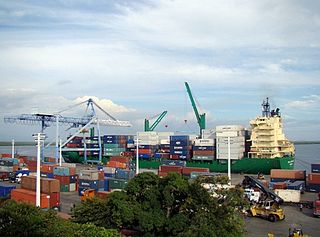 The Transpacific Stabilization Agreement (TSA) has issued guidelines on revising westbound low-sulfur fuel charges as a maritime policy requiring carriers to shift to more costly 0.1%-emission marine gas oil (MGO) takes effect on January 2015.
The Transpacific Stabilization Agreement (TSA) has issued guidelines on revising westbound low-sulfur fuel charges as a maritime policy requiring carriers to shift to more costly 0.1%-emission marine gas oil (MGO) takes effect on January 2015.
TSA said U.S. exporters of container cargo to Asia will see changes in their overall freight costs beginning January 1, as current low-sulfur fuel charges are adjusted to reflect larger vessels, slow-steaming, and stricter sulfur oxide (SOx) emissions standards.
The recommended quarterly low-sulfur charges for westbound cargo effective January 1 are US$47 per 40-foot container from the current $21 per FEU (until December 31, 2014), and $38 per 20-foot container from the present $17 per TEU from the U.S. West Coast.
Quarterly low-sulfur charges for westbound cargo from January 1 will be $95 per FEU from the present $24 per FEU and $76 per TEU from $19 per TEU from the East and Gulf Coasts,
For its westbound fuel charges, TSA will retain its historic pricing for 20-foot equipment at 80% of the FEU level.
Container ships will need to switch to burning MGO during the approximately six days of sailing within the 200-mile North American coastal zone from the West Coast, and 10 days’ sailing for an all-water East or Gulf Coast service, to meet stricter 0.1% SOx emissions limits under the International Maritime Organization’s MARPOL (Maritime Pollution) Annex VI treaty.
Current MGO prices are $97 per metric ton higher than low-sulfur fuel now in use and $365 per ton higher than standard marine bunker fuel for a typical West Coast sailing. For East and Gulf Coast sailings, they are $340 higher than low-sulfur fuel now in use and $372 per ton higher than standard bunker fuel via the East and Gulf Coasts.
“Carriers anticipate a sharp, overnight rise in fuel costs as the stricter emissions standards take effect,” explained TSA executive administrator Brian Conrad in a November 4 official statement, “not only from the higher MGO price differential in any case, but also from potential short supply early on as refiners ramp up to meet sustained demand. Lines must make sure these costs are adequately reflected in their pricing structures from day one.”
But bunker charge to drop slightly
In a related move, effective January 1, TSA-Westbound will be modifying its quarterly bunker charge to reflect changing vessel and sailing characteristics, resulting in a slightly lower charge at current bunker price levels, and reduced price sensitivity in formula tiers.
For comparison, at 13-week price averages now in effect for the fourth quarter of 2014, the modified bunker charge would be $663 per FEU for the West Coast and $1,316 for the East and Gulf Coasts, versus $673 and $1,325 under the current formula.
TSA is a research and discussion forum of major container shipping lines serving the trade from Asia to ports and inland points in the U.S. Members include APL, China Shipping Container Lines, CMA-CGM, COSCO Container Lines, Evergreen Line, Hanjin Shipping, Hapag-Lloyd, Hyundai Merchant Marine, Kawasaki Kisen Kaisha, Maersk Line, Mediterranean Shipping Co., Nippon Yusen Kaisha, Orient Overseas Container Line, Yangming Marine Transport, and Zim Integrated Shipping Services.
FIATA assails ‘unjustified,’ ‘questionable’ surcharges
Freight forwarders are protesting what they say are unsupported and unjustified surcharges being imposed by shipping lines, although they have yet to react to the changes in low-sulfur charges.
The International Federation of Freight Forwarders Associations (FIATA) in a statement released November 4 said the world’s container shipping lines should provide greater clarity “on the ever increasing variety of surcharges that they apply.”
Robert Keen, chairman of FIATA’s Multimodal Transport Institute, said forwarders are accustomed to currency and fuel surcharges, but need more transparency for other surcharges, “often with questionable names and purposes,” that are charged to freight forwarders.
Keen said, “In the past, we have seen administration fees, peak season surcharges, or ISPS-add on surcharges. Of late, we have had examples of container cleaning fees and container sealing fees, without any evidence of the expense actually being incurred.”
“There have also been recent examples of port congestion surcharges caused by labour unrest; and haulage surcharges resulting from HGV driver shortages, which is difficult to understand as there is no explanation and little justification for an additional charge for a service that the container line is finding difficult to provide.”
Keen concluded: “It is time for freight forwarders to stop accepting at face value opaque and unjustified surcharges.”
Photo: Saibo




